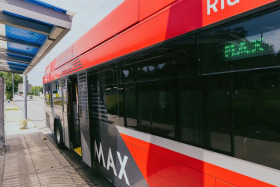- August 26th, 2022
- 0 Comments

|
In 2020, Kansas City became the first major U.S. city to offer free bus fare through a three-year program called ZeroFare KC. And while this milestone helps with access to transportation, the Kansas City Area Transportation Authority continues to see decreasing ridership – by approximately 3 million riders between 2019 and 2021. Before it was free, the city collected $8 million in fares per year. The city budget has since then dedicated $4.8 million to the transit system – with plans of making up the other half with federal pandemic funds through 2023. After that, KCATA will continue to seek a diversified funding partner to fund ZeroFare KC. According to Cindy Baker, VP of Marketing, Communications & Customer Service at KCATA, ridership recovered at a quicker pace than many other transit agencies due to KCATA's zero fare program, with ridership now 80% of pre-pandemic levels. However, according to this article from the Kansas City Beacon, the pandemic doesn't paint the whole picture regarding the drop in ridership. Currently less than 3% of workers in Kansas City use the bus to commute, and only 12.8% of low-income households are near a transit system. Moreover, long wait times, infrequent bus service, complex reroutes, and lack of communication negatively impact the bus experience for many riders. |













